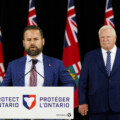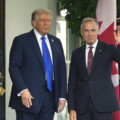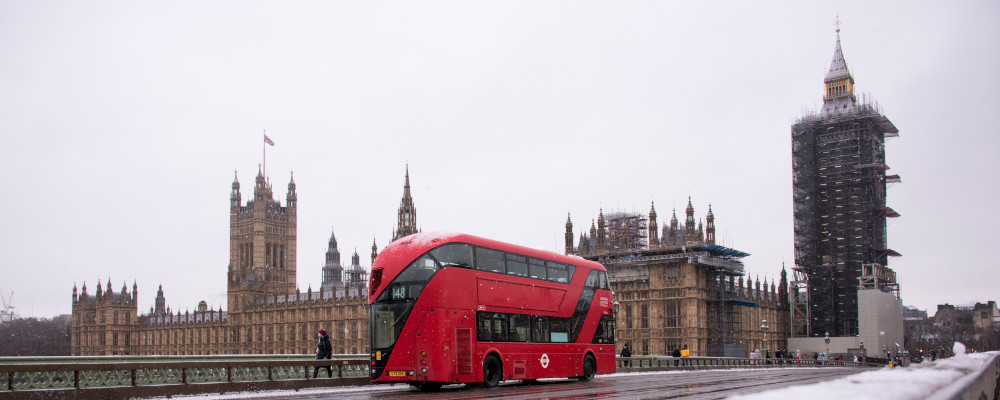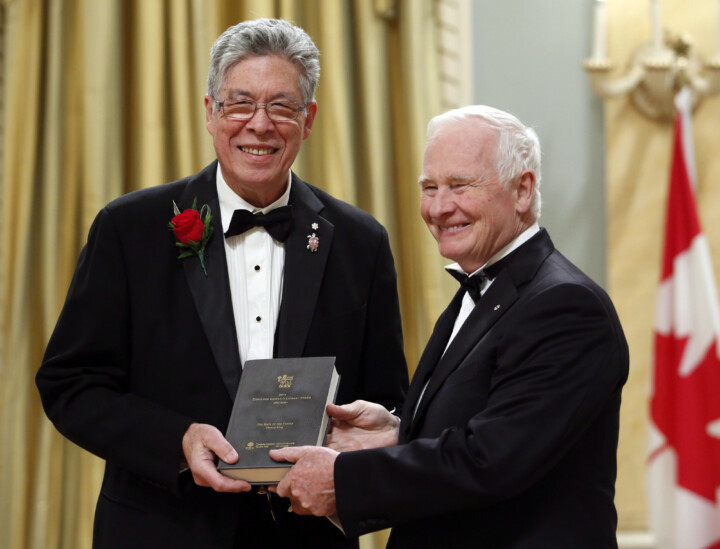To work in British politics is to be awash in papers. Command papers, Green papers, White papers, think tank research papers, consultation documents, party manifestos, and that’s even before we get to the newspaper columns.
Imagine, then, what a British politician would think reading Howard Anglin’s comments on Erin O’Toole’s demise: “the one time he was forced to put principles down on paper they weren’t bad.” I can imagine a chorus of junior ministers, up and down the ranks of Whitehall crying in unison: “just one time?!”
I jest, but there is a serious point here about the paucity of intellectual life above the 49th parallel. We don’t have a culture of real debate, nor do we expect much of our politicians when it comes to substantive intellectual contributions. The closest we get are those “I’m running for leader” books that have no substance and worse titles. Common Ground (Trudeau) and Values (Mark Carney) come to mind.
This is a problem for Canada. Sure, there are really interesting writers (everyone at The Hub, for example), but there is very little in the way of a sustained policy conversation between governing and political institutions and within broader civil society. The Canadian government still has not released its China strategy, seven years on. Not so in the United Kingdom. Put it this way: the British government just released a 332-page White Paper, and one of the main critiques levelled at it is that it lacks detail.
And the problem goes beyond the Canadian government; it is particularly acute in the Conservative Party of Canada, now that it is in opposition. It is frankly absurd that we don’t have the greater capacity and stronger institutions to better equip a Leader of the Opposition to develop a policy programme beyond that required for an election platform. The policy capacity of political parties is necessarily limited and yet we don’t quite have in Canadian political life a strong enough ecosystem of adjacent institutions and voices supplying new ideas and compelling policy recommendations.
This has contributed to a highly centralized policy process that is marked by a lack of policy innovation. Take the development of party platforms for instance. Because of the necessary secrecy of the platform process, you end up getting policy that’s conceived of and developed within the leader’s office, with limited input from civil society, caucus, or the party membership. This default to centralization tends to lead to a preference for poll-driven policy making over creativity or long-term thinking. As we saw with Erin O’Toole, the leader also has no way to cultivate new intellectual ground with the party nor is he or she able to effectively road-test ideas before they become official policy.
Compare that to the Shadow Chancellor here, who wrote a 66-page pamphlet outlining her views on the British economy, or any number of books that Cabinet Ministers publish regularly setting out their views on public policy questions. These documents are necessarily exercises in strategic ambiguity in places, but they set out a general philosophical direction, and involve a degree of intellectual rigour about which Canadian politics can only dream.
Laying all the cards on the table here, I tend to think that Erin O’Toole’s policy re-orientation was necessary and captured the shifting nature of conservatism in an era of low-interest rates and a public health crisis. Yet, despite the changing nature of the public policy landscape, and the renewed strength of the Liberal Party, the Leader’s office completely lacked the mechanisms to road-test policies, to seek ideas widely across civil society, and to operate a policy shop that wasn’t fundamentally oriented around political staff with day-to-day responsibilities. It was bound to be challenging to pull off a major policy shift in modern Conservative politics in that context.
Here, Canadian Conservatives could learn a lot from the United Kingdom, whose intellectual rhythms, certainly on the right, are driven by a plethora of think tanks with close proximity to political parties and the political process.
Take my think tank, for example. Policy Exchange was founded in 2002 to modernise and refresh the broad centre-right and in particular to be a “safe space” where both sides of the political spectrum could debate the most pressing questions while presenting important public policy to government. Since that time, we have worked closely with civil society, the private sector, and the government to help generate new and interesting policy ideas. Most recently, our report “Modernising the United Kingdom” included a huge range of policy suggestions, such as deepening devolution, re-structuring Whitehall, and suggesting innovative ways to address the goal of net-zero emissions. We are the intellectual driving force behind the British government’s “Indo-Pacific tilt” (through a Commission chaired by our very own Stephen Harper) and our Judicial Power Project has helped re-imagine the role of the judiciary.
It has also been a key place for Ministers and Shadow Ministers to stress-test ideas. In the 2017 election, the Conservative Party in the UK learned the hard way when a social care policy prepared off the hoof, without input from civil society, derailed their quest for a stable parliamentary majority and almost let Labour Party leader Jeremy Corbyn into office. Think tanks here play a key role in giving policymakers options.
What is more, think tanks provide a platform for policy entrepreneurship for MPs not in the government. Canada lacks any institutions to help MPs develop strong views outside of the leader’s office and the civil service infrastructure. Places like Policy Exchange give MPs access to expertise and the space to think seriously about key public policy issues. That can only be a good thing, especially in Canada’s hyper-disciplined and ultimately counter-productive party culture.
Finally, a stronger and more overtly political think tank culture would allow Conservatives to have both a more robust and a healthier conversation about the future. Policy Exchange is the most influential think tank in the United Kingdom, but it exists within a firmament of others as well. The point here is that a debate about conservatism’s future can be something more than personality and something less than all-out war. As we have seen in the past few weeks, Canadian Conservatives desperately need a glue stronger than personal charisma and structures that dissipate anger.
Renewed engagement with the world of Canadian think tanks on one hand and a greater effort on the part of think tanks to root their analysis and recommendations in practicalities of political economy on the other hand, may be the missing ingredient. Think tanks can and should be a big part of an exercise of intellectual renewal within Canadian Conservative politics.
As you can probably tell, one of the reasons I’ve stayed in the United Kingdom for so many years is because, compared to back home, the quality of the political debate and policy discussion is so much stronger. I don’t think this is an inevitability. Canada is wealthy enough and our politicos are talented enough to generate our own think tank culture. While I am staying in the Big Smoke for a while yet, my door is always open to anyone who might want to chat about how Canada, and conservatism in particular, can get the intellectual life it so richly deserves.
Recommended for You

Letter to a minister: What the federal government should—and shouldn’t—do to solve the housing crisis

The Weekly Wrap: Canadians hate ‘populism’—but love populist policies

Canadians must open their eyes to our growing culture of corruption

‘Albertans do not believe Canada works’: Rick Bell on whether the pipeline deal hurt Alberta separatism




Comments (0)